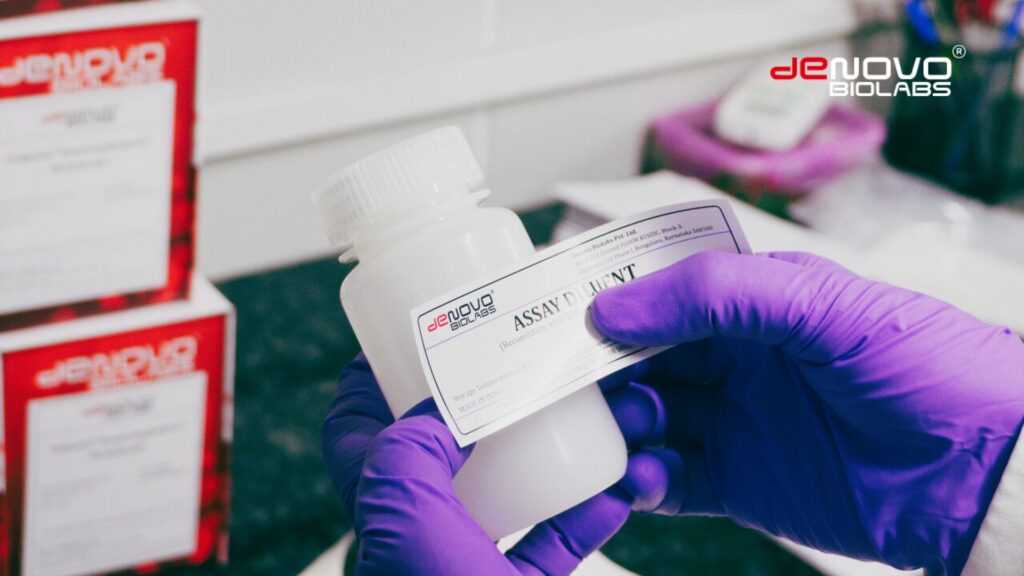A rapid diagnostic platform powering R&D and Biopharma

In the fast-evolving landscape of life sciences and biopharma, the need for rapid, reliable and user-friendly diagnostic tools has never been greater. Among the technologies that have stood the test of time are Lateral Flow Assays or LFA, that still continue to dominate due to their affordability, speed and adaptability across sectors.
From academic labs to diagnostic kit manufacturers and biopharmaceutical companies, LFAs are increasingly being leveraged in research, clinical testing, infectious disease surveillance, therapeutic monitoring, and point-of-care diagnostics.
In this article, let us explore the key fundamentals of LFA technology, its growing relevance in 2025, and how customised LFA development is shaping the future of diagnostic science.
What is a LFA? ?
Lateral Flow Assays are paper-based platforms used to detect the presence (or absence) of a target analyte in a sample without the need for complex equipment. They are based on the principles of immunochromatography and deliver results in a matter of minutes.
Common sample types include:
- Serum/plasma
- Saliva
- Nasal swabs
- Urine
- Whole blood
A classic example?
The COVID-19 rapid test which brought LFA into the public spotlight. But in the lab, LFA technology serves far beyond that.
Core Components of an LFA Strip
Understanding the structure of an LFA helps researchers and manufacturers better design assays for specific use cases:
- Sample Pad – Receives and prepares the sample.
- Conjugate Pad – Contains labeled antibodies that bind to the target analyte.
- Nitrocellulose Membrane – Contains the test and control lines.
- Absorbent Pad – Draws the sample across the strip via capillary action.
- Backing Card – Holds all components in place.
Applications in Research & Biopharma:
A. Preclinical & Clinical Research
- Biomarker validation
- Cytokine level detection
- Companion diagnostics
B. Biosimilar Development
- Rapid screening of antibody-drug binding
- Monitoring immunogenicity profiles
C. Vaccine R&D
- Detection of antibodies or antigens during immunization studies
- Scalable readouts for large sample pools
D. Therapeutic Drug Monitoring
- Measuring drug concentrations or anti-drug antibodies (ADA)
Advantages of LFA for Scientific Applications
- Rapid Results: Time-to-result can be as low as 5–15 minutes.
- Scalable: Ideal for high-throughput screening in clinical trials.
- Portable & Field-Ready: Zero dependency on instrumentation.
- Customizable: Target-specific design for novel or niche analytes.
- Cost-Effective: Low production cost, easy scale-up.
LFA in 2025: Industry Trends to Know
- Quantitative LFAs with digital readers are replacing subjective visual interpretations.
- Multiplex LFAs enable detection of multiple targets on a single strip.
- AI-assisted LFA readers are emerging to boost diagnostic accuracy.
- Custom LFA development is seeing explosive growth in personaliaed medicine and rare disease diagnostics.
Why Choose Custom LFA Development?
While commercial LFA kits exist for common analytes, custom LFA development is essential when:
- Detecting novel biomarkers
- Developing biosimilars or biologics
- Requiring ultrasensitive detection
- Creating a proprietary diagnostic product
Academic researchers and biotech firms often struggle with scalability, stability, or specificity of existing platforms. A tailored LFA assay, developed under strict validation protocols, resolves these challenges efficiently.
How does Denovo Biolabs support you?
At Denovo, we offer end-to-end LFA development services, including:
- Antibody/antigen pairing & screening
- Conjugation & pad optimisation
- Strip assembly and layout design
- Sensitivity & specificity optimization
- Pilot batch manufacturing
Whether you are in early-stage biomarker discovery, biosimilar monitoring, or launching your own diagnostic kit, our collaborative approach ensures your assay performs with consistency and clinical-grade accuracy.
Real-World Use Case
A biopharma partner recently approached us to develop an LFA for detecting anti-drug antibodies (ADA) for a biosimilar monoclonal antibody. We developed a customized assay that:
- Detected ADA in <15 minutes
- Demonstrated >95% specificity
- Was validated for clinical research settings
The result? Faster patient monitoring and improved dose adjustments in trials.
Final Thoughts
As the biotech and pharma industries become more decentralized, rapid diagnostic tools like LFA are critical to accelerating discovery and ensuring patient safety.
From field studies to clinical trials, LFAs provide a reliable, scalable, and cost-effective solution. And with custom development tailored to your needs, your diagnostic workflows can move faster, more accurately, and with greater confidence.
Want to build a custom LFA for your application?
Partner with Denovo Biolabs — where diagnostic science meets innovation.
? Visit denovobiolabs.com/lateral-flow-assay
? Or contact our team: info@denovobiolabs.com
